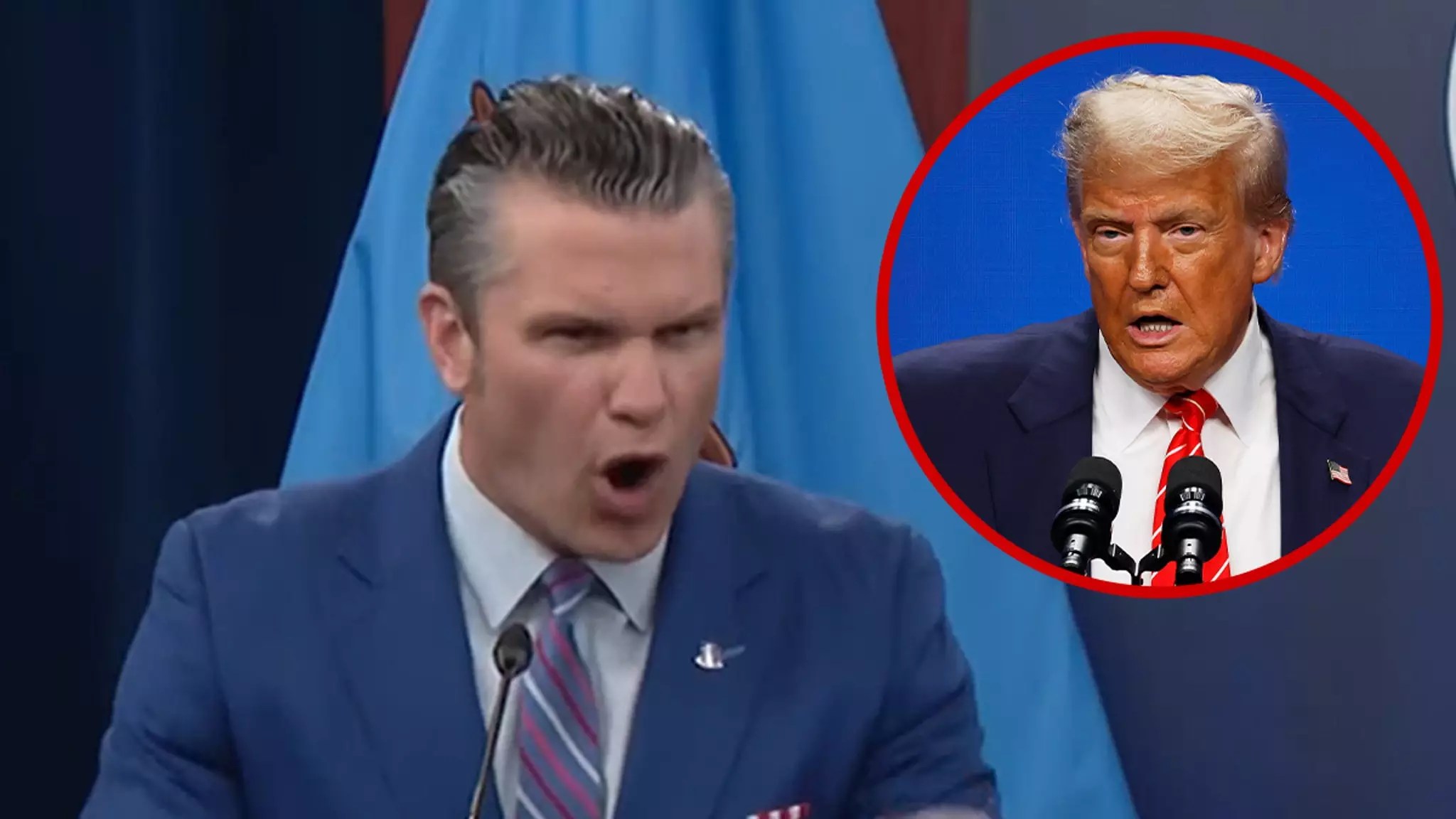In an increasingly polarized political climate, the relationship between the media and government officials has taken on a confrontational tone, especially within the context of military operations. Recently, Secretary of Defense Pete Hegseth publicly admonished the press for its critical coverage of the Trump administration’s actions, particularly following a military strike in Iran. This confrontation underscores a significant cultural divide regarding the narratives surrounding military engagements and their implications on national pride and support for the troops.
Hegseth’s critique hinged on the belief that journalists, driven by an animosity towards the Trump administration, overlook or distort the heroism of military personnel. His comments echo a broader sentiment among certain political factions that perceive the media as an opponent rather than an ally in telling the stories of those who serve. By framing the press as “un-American,” Hegseth attempts to invoke a sense of duty not only to the military but to the country itself, demanding recognition for actions that he sees as crucial to national security.
The Dangerous Cycle of Distrust
This clash reveals a disturbing reality: the systemic distrust between media and government actors fosters an environment ripe for misinformation and biased recounting of events. Such dynamics can create a dangerous cycle where the press feels compelled to question official narratives vigorously, while officials, in turn, retaliate by painting journalists in a negative light. Hegseth’s assertions that journalists trade in “half-truths” to undermine the administration represent a troubling trend; they simplify complex issues into binaries of patriotism versus treachery.
Moreover, by blaming the media for the perceived shortcomings of military actions, government officials risk alienating an essential watchdog that plays a critical role in shaping public perception. The media’s job is not merely to reinforce government narratives but to challenge them, providing context and depth that are often overlooked in official statements.
The Human Element in Warfare
In his defense of the military, Hegseth emphasized the importance of recognizing the individuals behind the operations—the pilots and service members who engage in frontline actions. He argued that negative media portrayals detract from their sacrifices. However, this perspective raises pertinent questions: Are we allowing the glorification of military action to overshadow legitimate scrutiny of its consequences? The choice to elevate stories of valor is indeed vital, yet should it come at the cost of critically engaging with the ethical ramifications of such strikes?
Hegseth’s comments following a journalist’s inquiry about a female pilot reveal an apprehension to confront issues of representation and sexism within military narratives. Such defensiveness indicates a reluctance to acknowledge that discussions about military recognition can coexist with broader conversations about inclusivity in the armed forces.
While the goal of fostering respect and admiration for service members is commendable, clinging to a singular narrative that champions the military without question risks negating the legitimate concerns that accompany discussions of warfare. In this climate of confrontation, the challenge lies not in vilifying each other but rather in finding a common language that appreciates the sacrifices of the military while also engaging critically with the realities of conflict. As narratives evolve, it remains essential for both the media and government entities to navigate their relationship with transparency and integrity.







Leave a Reply